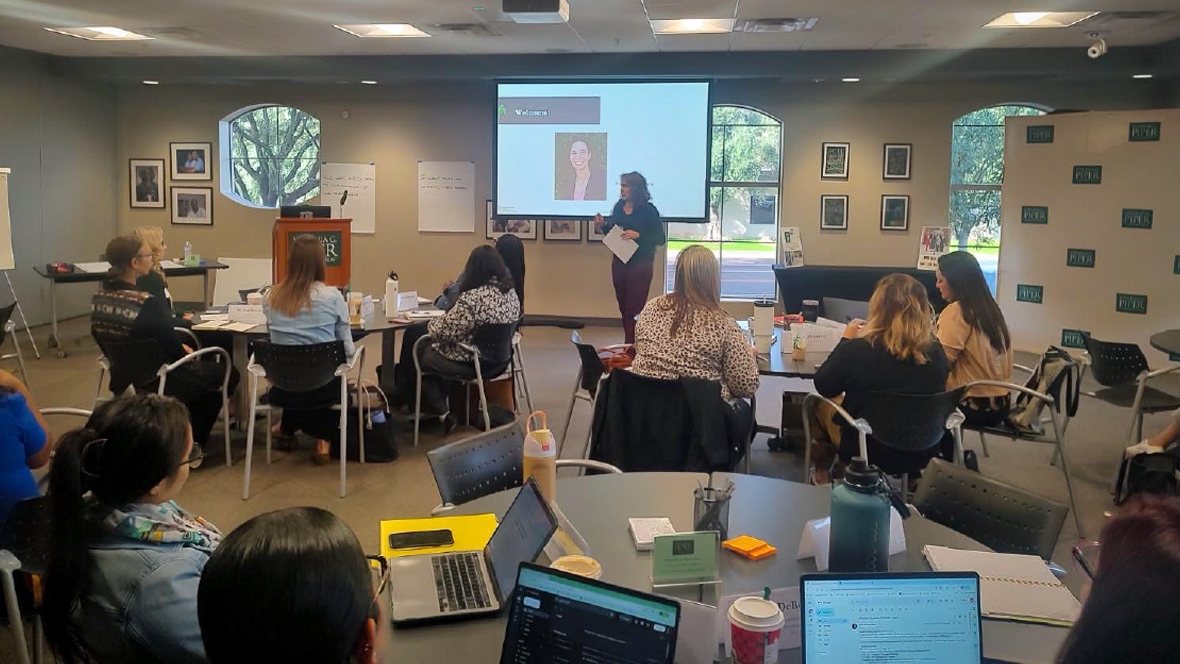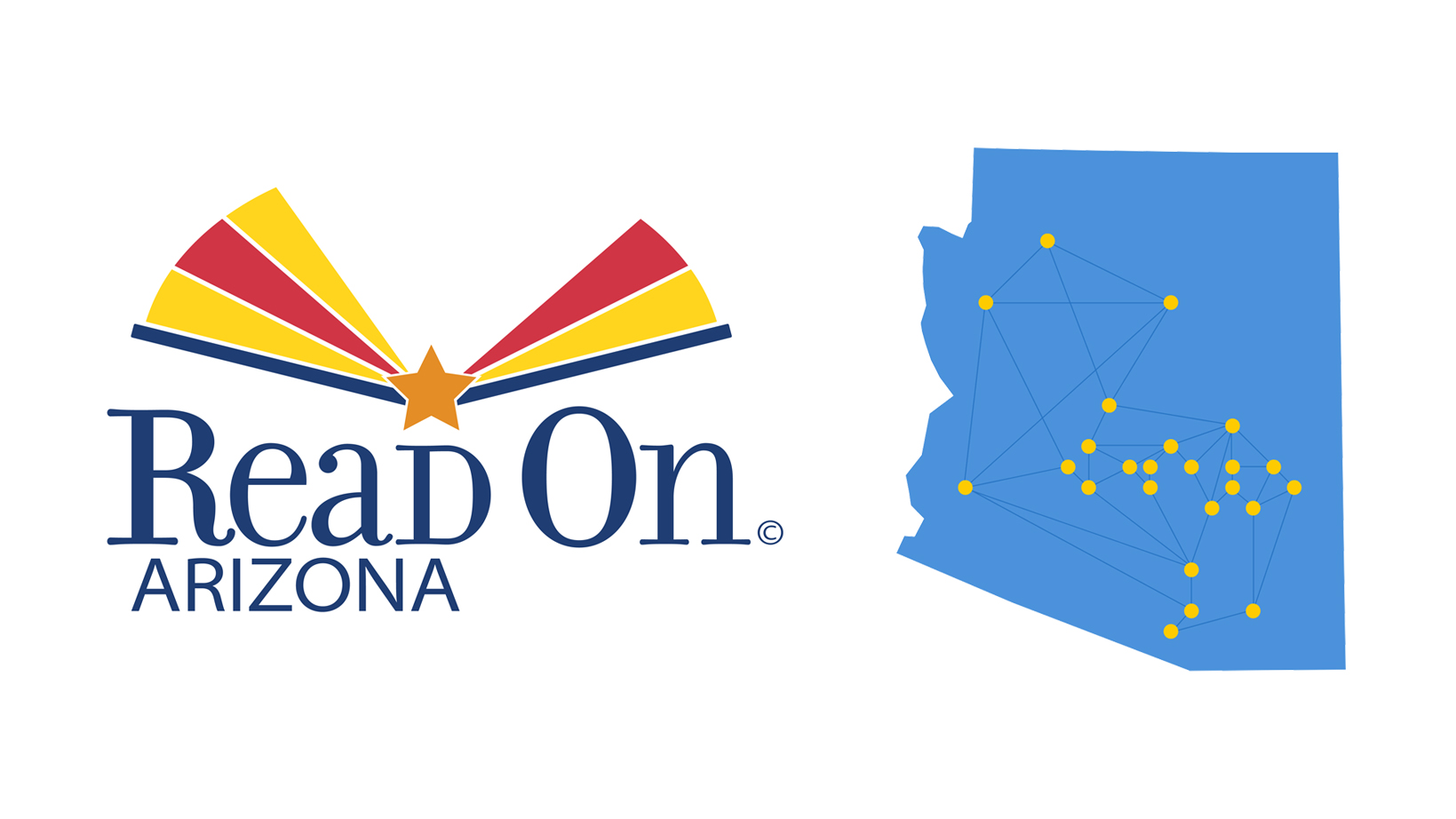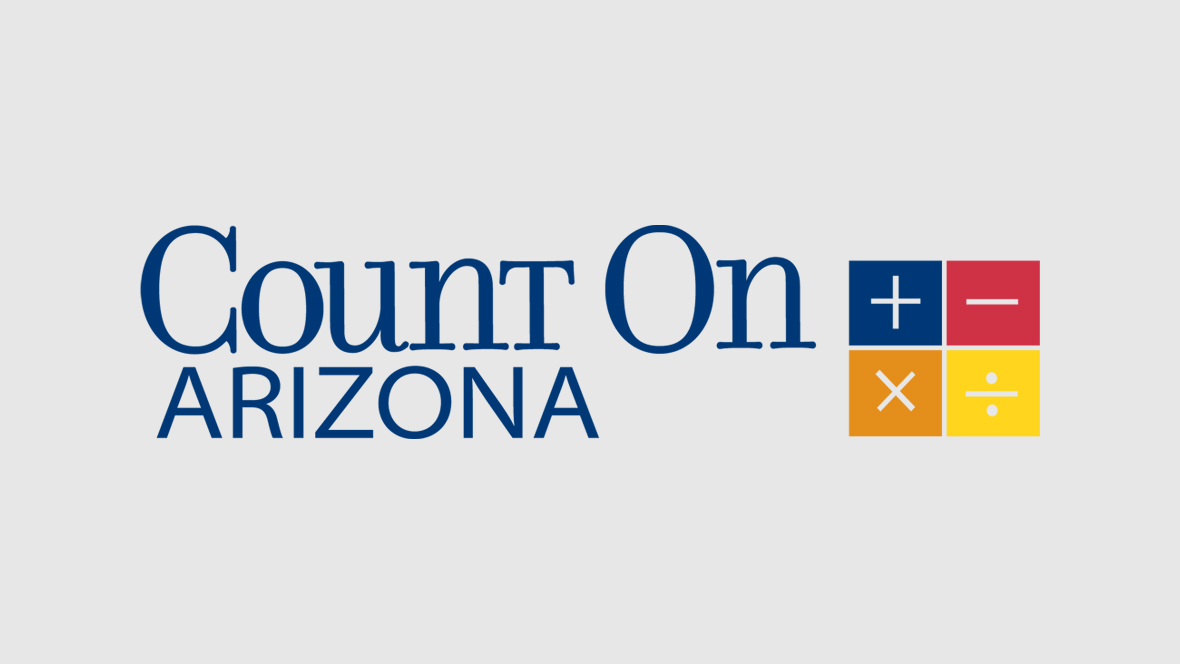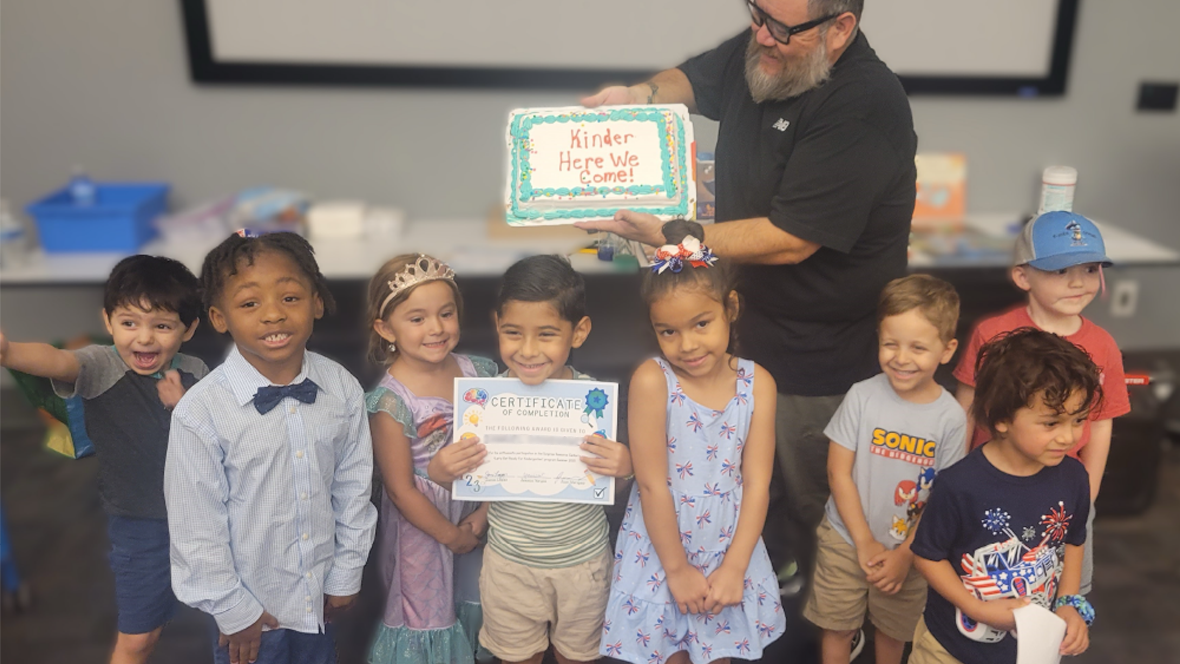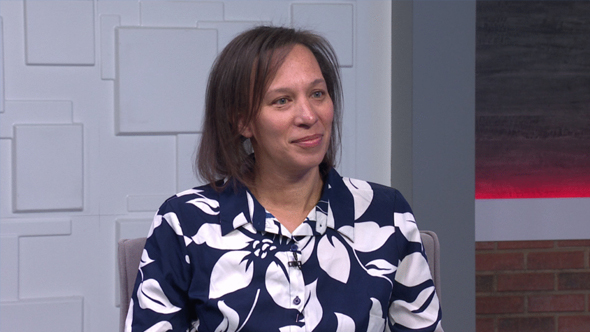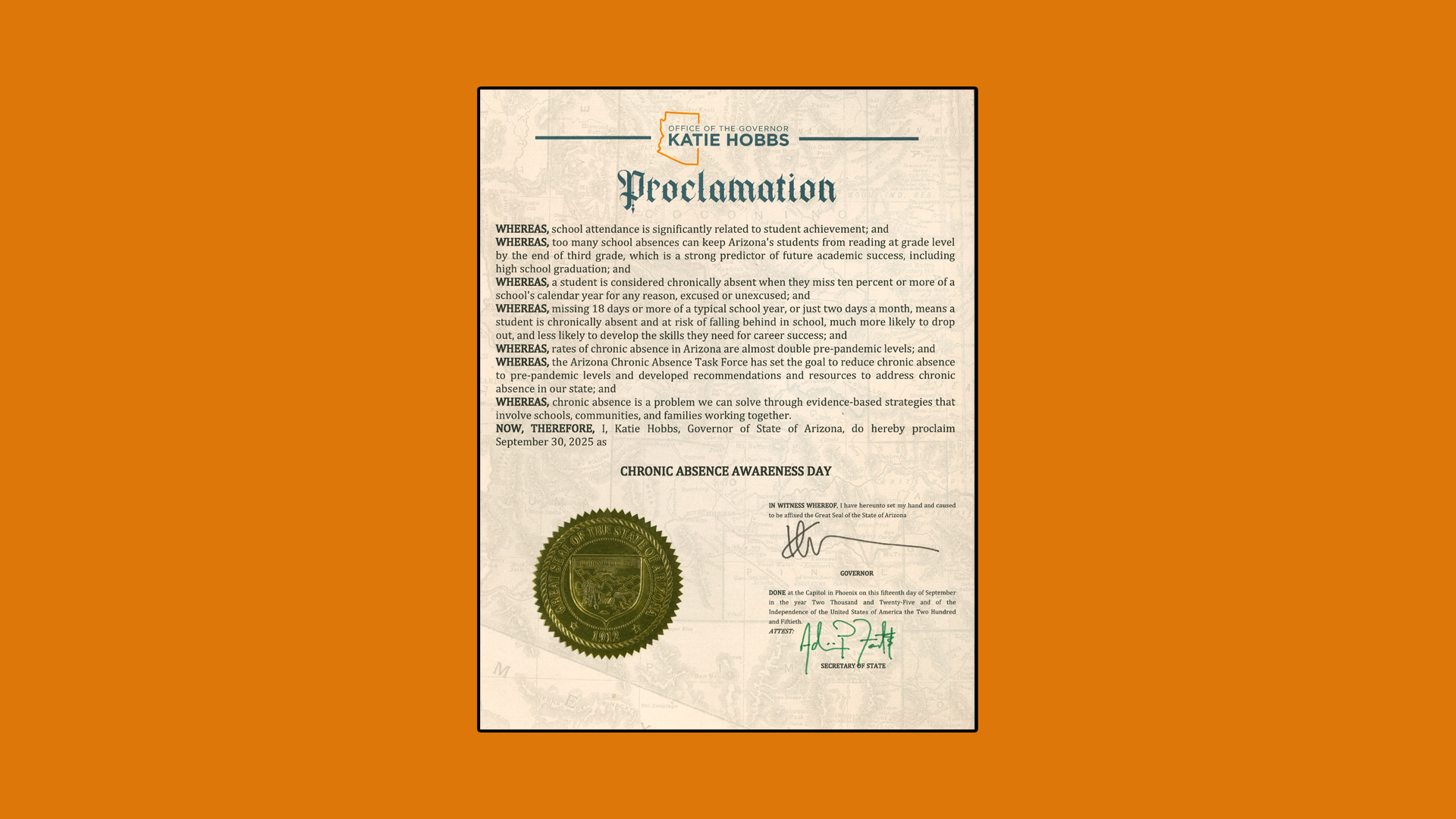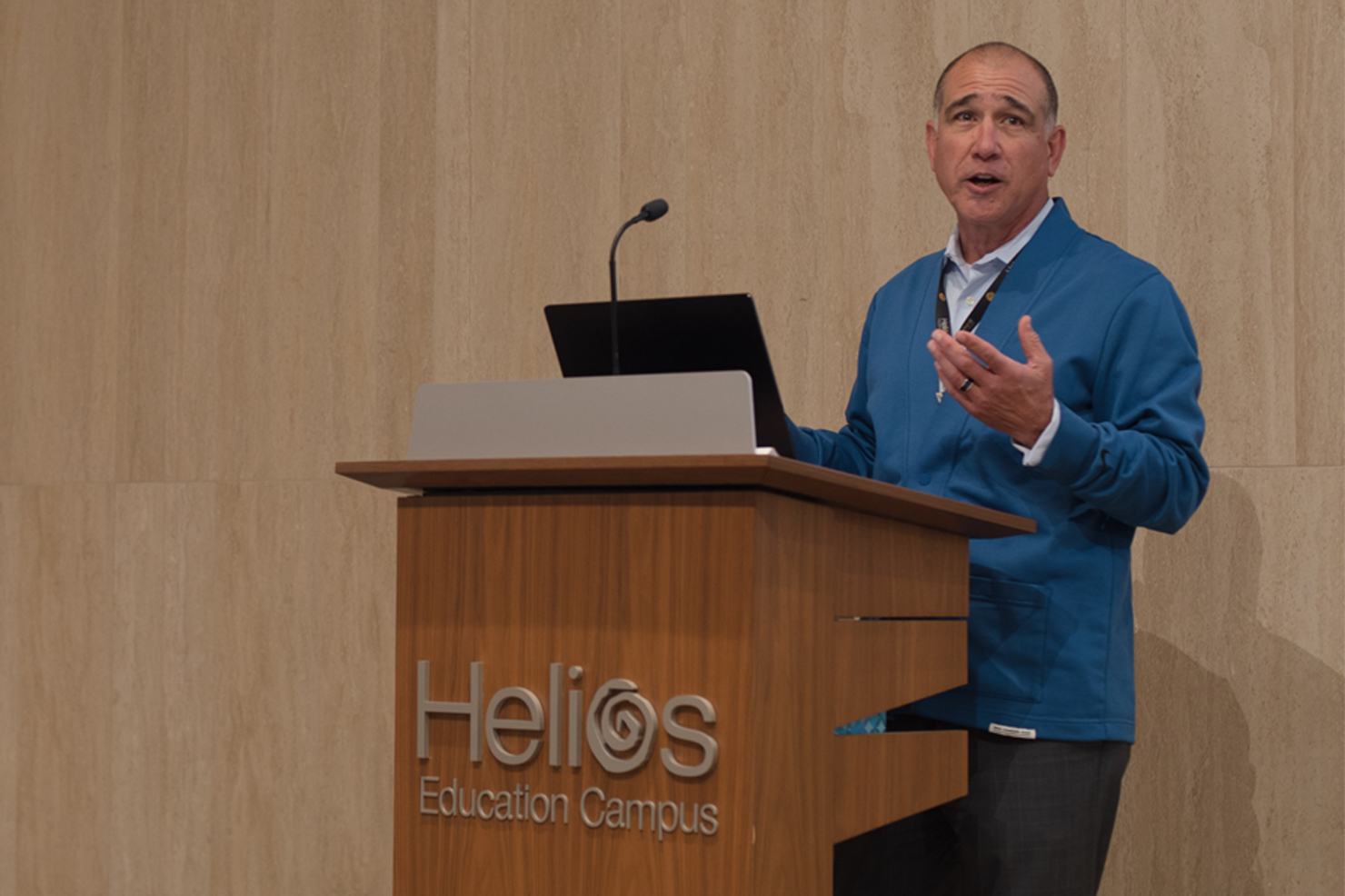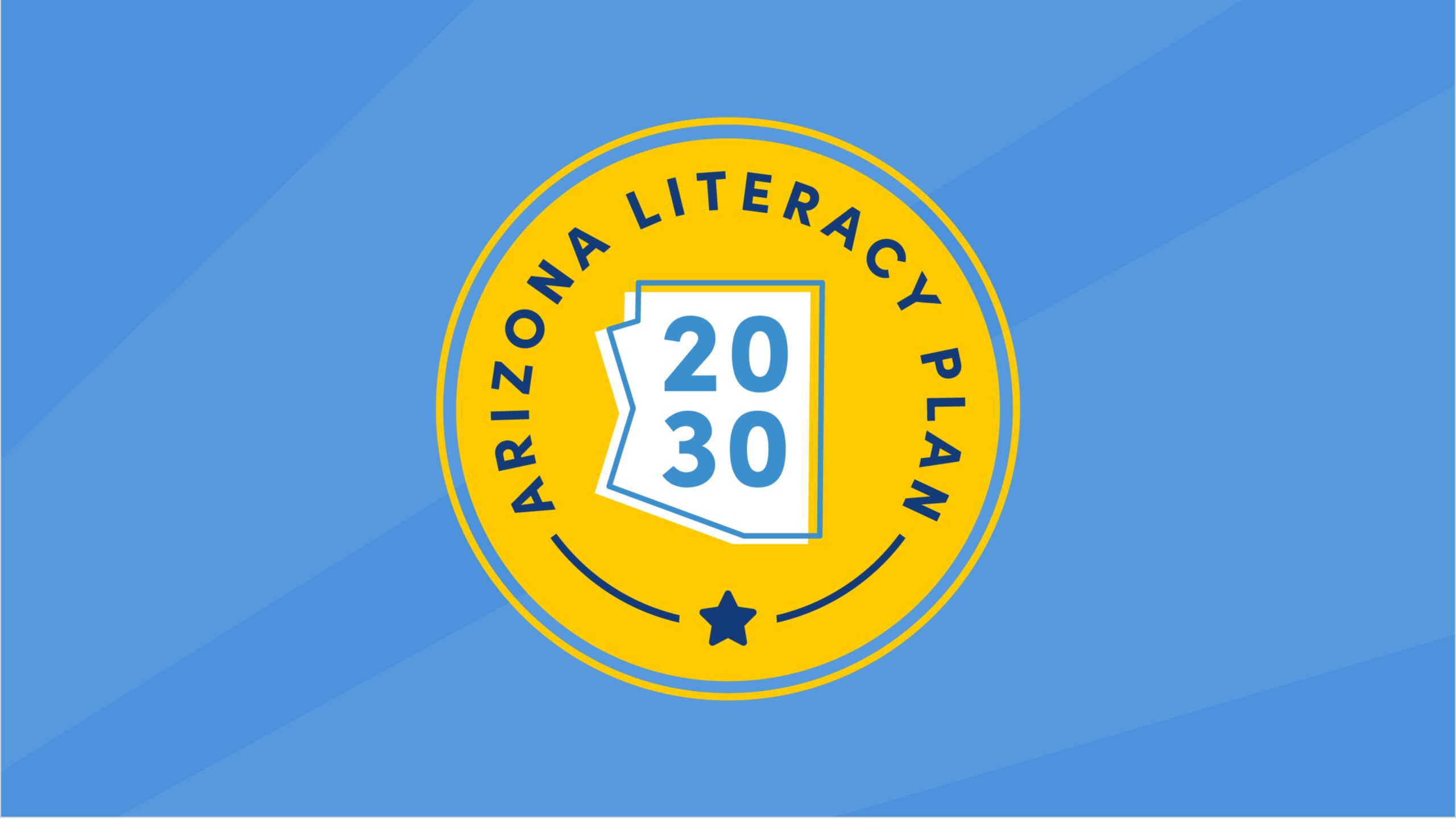December 31, 2024
Data
Data from the Arizona Department of Education showed a slight decline in third grade reading scores in 2024, with 39% of all students passing (proficient or highly proficient), down from 41% in 2023. Scores remained the same year-over-year among students who come from economically-disadvantaged backgrounds, more than half of all third graders in Arizona.
These results were not unexpected and are further evidence that learning loss and developmental delays from the COVID-19 pandemic will continue to impact our students, and test scores, for years to come.
High rates of chronic absence — the percentage of students who miss 10% or more of a school year — are another persistent challenge.
As with all but a few other states, Arizona’s overall third grade ELA proficiency rate remains below pre-pandemic levels.
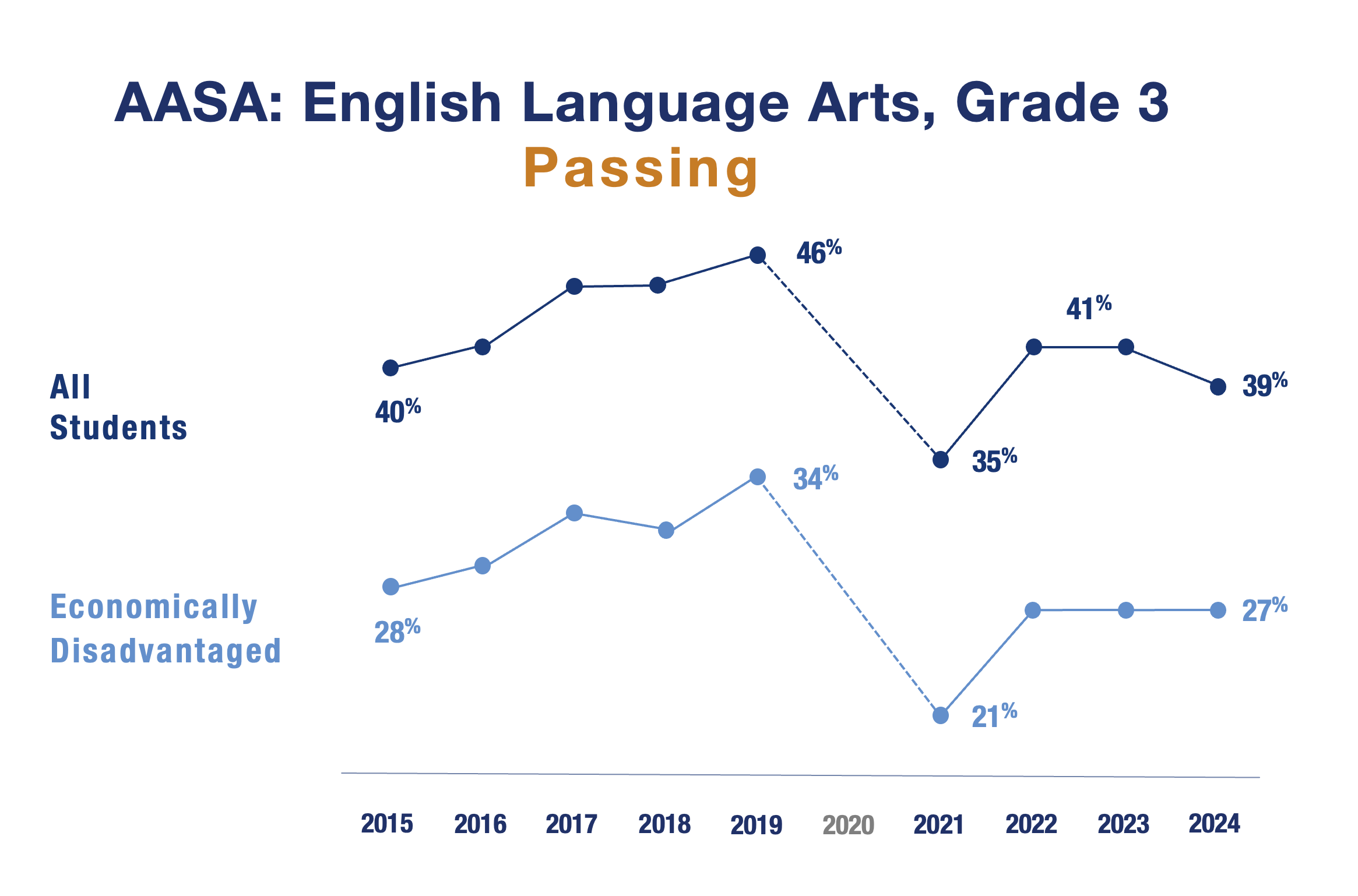
Why Early Literacy Matters
Each year, all public school students in grades 3-8 take grade-level assessment tests in English Language Arts (ELA) and Mathematics, as part of Arizona's Academic Standards Assessment (AASA). The ELA assessment encompasses reading, language, and writing and serves as our state’s benchmark for third grade reading proficiency, which research shows to be a strong predictor of future academic success, including high school graduation and college attendance. Students who don’t learn to read well by the end of third grade are likely to fall behind in all subject areas and much more likely to drop out.
Research also shows that, with the right support and instruction, the vast majority of children can learn to read at grade level, and that the best way to teach reading is with direct, explicit instruction in the foundational skills of literacy.
Going Forward
The 2024 third grade ELA results highlight the urgent need to improve early literacy in Arizona. For the benefit of our children and the future of our state, we must examine the methods and strategies that are working — many schools made significant growth in third grade ELA scores — and commit to bringing them to greater scale so that all our students have the literacy skills they need to be proficient readers and successful in school.
Partners in Read On Arizona have identified four strategic priorities to focus our collective efforts and maximize impact:
- Building educator capacity in the science of reading. Student outcomes improve when teachers are supported with comprehensive training and coaching on the most effective approaches to reading instruction.
- Scaling up evidence-based literacy solutions. Accelerating progress in literacy requires a comprehensive set of proven strategies — high-quality instruction, interventions, and a system of screening and assessment — to ensure that all children receive the support they need to read at grade level.
- Engaging families and communities to support school readiness and literacy. Literacy outcomes are driven by the learning that happens at home and in community settings as well as in the classroom. Families need high-quality, developmentally-appropriate resources and information to support language and early literacy development and promote school readiness.
- Expanding access to quality early learning. The skills and abilities children need to be proficient readers start developing from birth, and the learning that happens before kindergarten prepares children for school success. High-quality early learning programs support language and literacy development and help young children be ready for school and ready to learn to read.
These priorities are the foundation of Arizona’s 2030 literacy plan. Policies and strategies like Move On When Reading, Arizona’s K-5 Literacy Endorsement, funding for literacy coaches, and other proven approaches must continue to be critical parts of Arizona’s comprehensive approach to improving reading outcomes.
Read On Arizona was launched from the urgent, fervent belief that Arizona had to do more to help our young children develop the literacy skills they need to be proficient readers and successful in school. Our founding partners understood from the beginning that progress is made incrementally, with no quick fixes or magical solutions. And we still have much more work to do.

